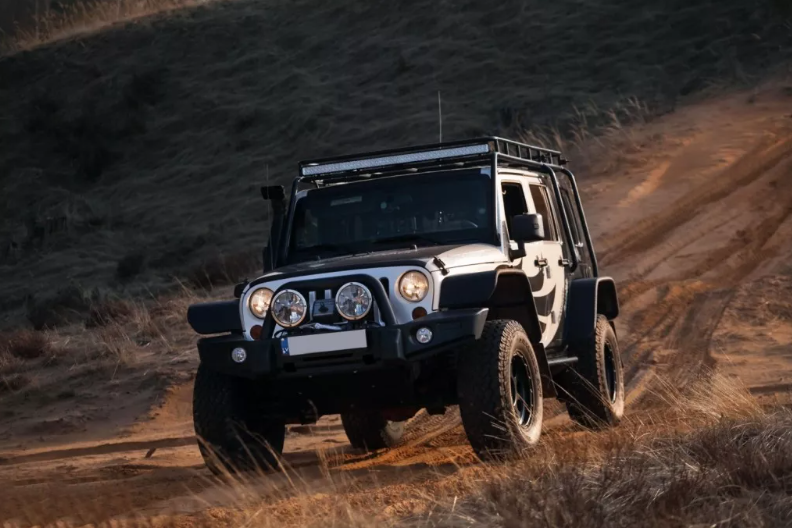Owning a jeep is easy, but maintaining it is a different story. You may be wondering … how is it a problem? What are the biggest problems that jeep owners face? There are many common issues that a jeep owner can face, either structural problems with the vehicle or operational issues that a driver may face while driving the jeep.

Either way, there are issues that one can resolve and avoid any mishaps. To make things easier to understand, let’s break down the various factors into a list and discuss each factor in detail. Here are the biggest problems that jeep owners face and they are as follows:
Poor fuel economy: Poor fuel economy is one of the biggest problems that Jeep owners face. Much of this issue is due to the larger and more powerful engine found in Jeep vehicles compared to other cars. Other factors that contribute to the lowered fuel economy are modifications, such as larger tires, heavier loads, and poor maintenance.

Driving habits such as rapid acceleration and increased highway speeds also decrease fuel efficiency. To improve fuel economy, Jeep owners should pay attention to their driving habits, ensure proper vehicle maintenance, and avoid unnecessary modifications. Additionally, driving at steady speeds, avoiding unnecessary stops and starts, and anticipating traffic or stop lights can also help improve overall fuel economy.
Unreliable off-road performance: Poor off-road performance is due to the design of Jeeps, which are heavier and less agile than other cars. Jeep vehicles can have difficulty in rough terrain due to their large size and lack of clearance between ground and chassis, making them more prone to getting stuck.
Additionally, the suspension system of Jeeps is not always optimal for off-road terrain, leading to issues with stability and maneuverability. Jeep owners should check their suspension systems regularly to properly handle rough terrain. Furthermore, proper maintenance and the use of off-road accessories, such as skid plates and mud tires, can help improve the Jeep’s off-road performance.
Engine trouble: Engine trouble occurs due to the heavy weight of the vehicle and the amount of power required for it to function properly.
Engine troubles can also be caused by poor maintenance, improper modifications, or incorrect driving habits.
Common engine troubles for Jeep owners include oil leaks, misfiring, clogged fuel injectors, and excessive smoking. To prevent or reduce engine problems, Jeep owners should ensure regular maintenance is carried out and avoid unnecessary modifications. Additionally, they should drive according to manufacturer instructions and pay attention to flashing lights and other warning signs that appear on their dashboard.
Expensive repair cost: The complicated designing and engineering of the vehicle brings forth more expensive parts and labor costs. There are certain parts that can be difficult or expensive to find for certain models.

Some repairs require specialized knowledge or skills and can be costly if undertaken by a professional. To reduce repair costs, Jeep owners should ensure regular maintenance and inspections are carried out, as well as attend to minor issues before they become serious.
They should be aware of the different components of their vehicle and the problems they may encounter. DIY maintenance and repair can also help save on repair costs.

Lack of interior comfort: This is mainly due to the design and engineering of Jeeps, which are usually focused more on off-road performance than interior comfort. Furthermore, certain models may not have adequate soundproofing or insulation, making for a noisy and uncomfortable ride.
Some Jeep models also have limited seating and cargo space, resulting in cramped conditions. To improve interior comfort, Jeep owners should invest in accessories such as soundproofing, seats, and interior trim.
They should also ensure their vehicles are properly maintained and serviced to reduce noise and vibrations from the vehicle. Finally, upgrading the suspension system can also help improve the overall comfort level.
Visibility and Blind Spots: A statement may have crossed your mind while owning a Jeep and that is “What are the Biggest Problems that Jeep Owners Face?” The increased height of Jeeps can make it difficult to see over the hood and windshield. Some models have limited rearview mirror visibility, making it difficult to reverse or change lanes.
To improve visibility, Jeep owners should invest in additional mirrors or camera systems. They should ensure their windshield wipers are regularly replaced to keep the glass clear during rain or snow. Finally, larger side mirrors and brighter headlights can also help with visibility, especially when changing lanes or parking.
Unreliable parts: Yes, Jeeps can have unreliable parts. Some of the more common issues include incorrect or worn-out suspension components, electrical problems, and engine issues. Poor quality control in production, as well as age and wear, can all contribute to part failure, making them unreliable.

To reduce these problems, Jeep owners should ensure regular maintenance and inspections are carried out on their vehicles. Additionally, they should also make sure any modifications or replacements to parts are done correctly. Furthermore, researching models of Jeep components and purchasing high-quality parts can help improve reliability. Also, ensuring that the vehicle is properly serviced and stored can help keep parts reliable for longer.
Poor handling: It can be difficult to maneuver in tight spaces. Their higher centers of gravity can increase the risk of rollovers when taking sharp turns or navigating steep terrain. To improve handling, Jeep owners should check and maintain the suspension system regularly.
Jeep owners should pay attention to tire pressure, alignment, and other aspects of the vehicle which can impact handling. They should ensure that the vehicle is appropriately loaded and never exceed the weight limits. You need to avoid aggressive driving and take note of any signs of wear or damage to the tires or suspension. You can make your ride even safer by adding some countermeasures for your safety.
Issues with components such as brakes and suspension: Jeeps are heavier and more powerful than other vehicles, resulting in increased wear on these components. Also, improper use or maintenance can increase the risk of these parts failing. To reduce issues, Jeep owners should ensure their vehicles are serviced regularly and pay attention to signs of wear or damage to the brakes and suspension.

They should avoid excessive speeds or driving conditions that could cause damage to these components. Installing accessories such as skid plates and mud tires can help improve performance and reduce wear.
Rust issues: Jeep components are exposed to more moisture and dirt than other vehicles. Certain parts of the Jeep have limited rust protection, making them more prone to corrosion. To avoid this, Jeep owners should ensure regular maintenance and inspection are carried out, focusing particularly on parts with limited protection.
They should also invest in regular car washes, as well as an upgrade to rust-proof parts where possible. Finally, using sealant treatments on vulnerable parts can also help reduce the risk of corrosion.
Conclusion: The key to avoiding the problems that may occur in your jeep is “safety, pre-caution, and maintenance”. These key practices can be the deciding factor for a secure and hassle-free journey on your Jeep.
Jeeps are made of materials that deteriorate with time and routine check-ups can ensure that the vehicle is always in excellent shape and functionality. If you are conscious of these aspects then the question … “What are the Biggest Problems that Jeep Owners Face?” would never come to your mind!
For a detailed review that makes you understand the strengths of a Jeep, check out the video!


